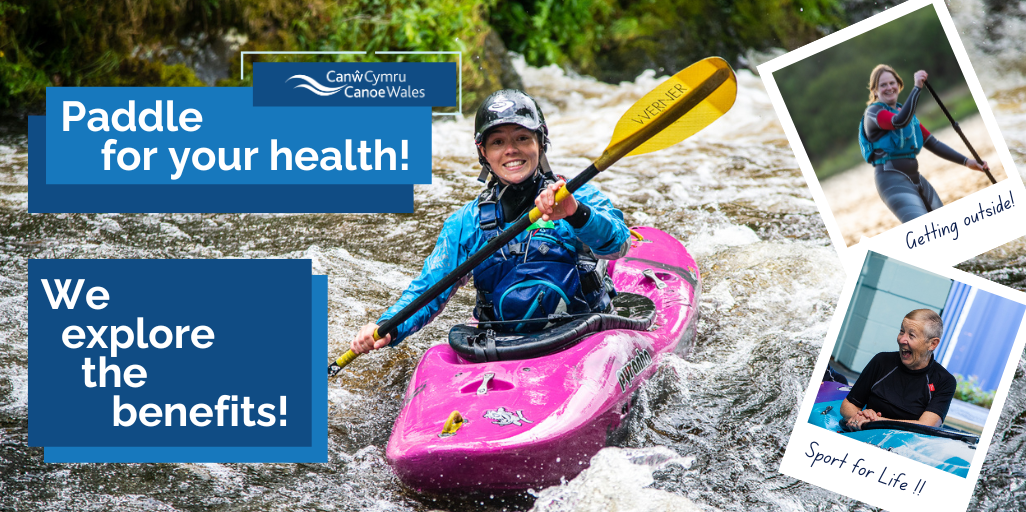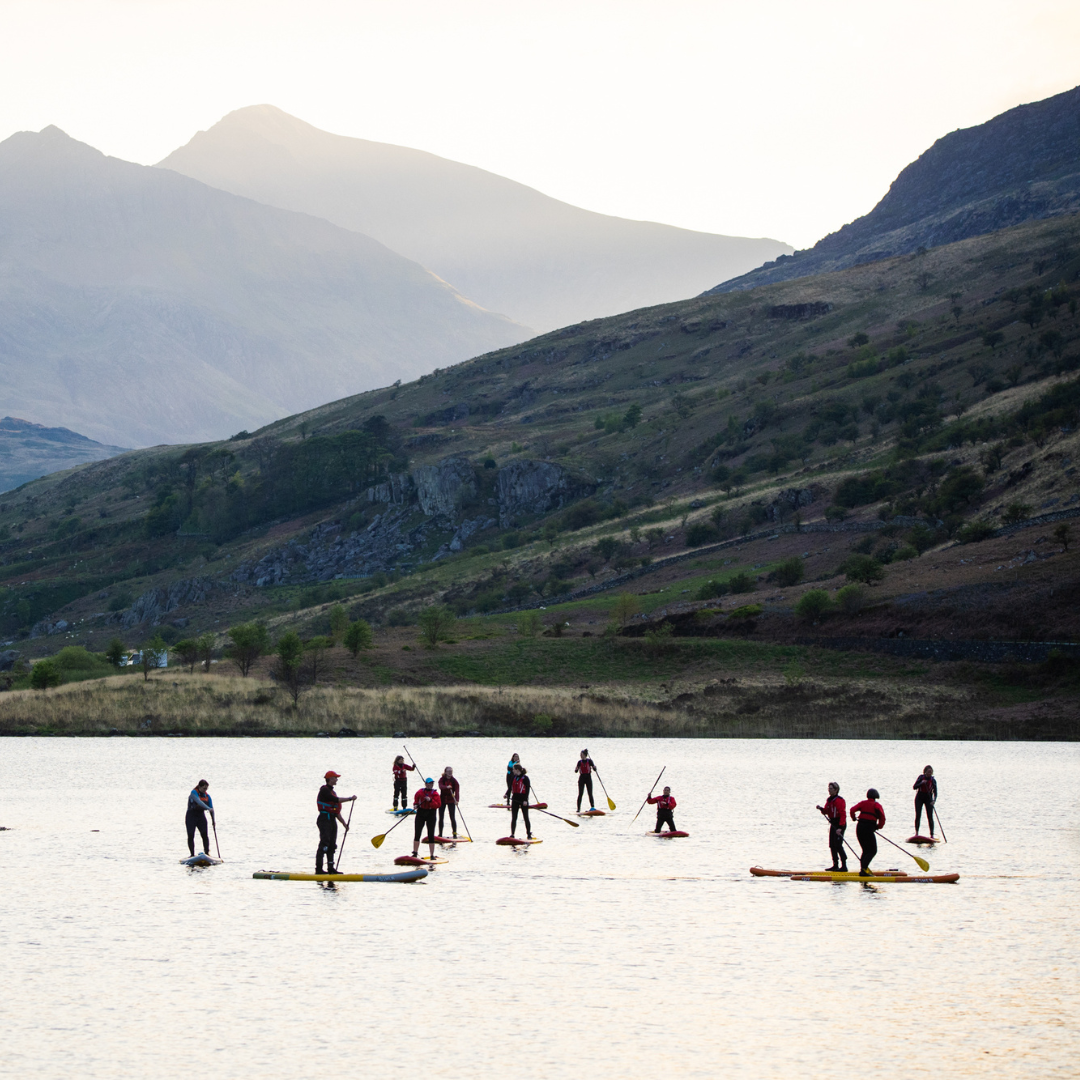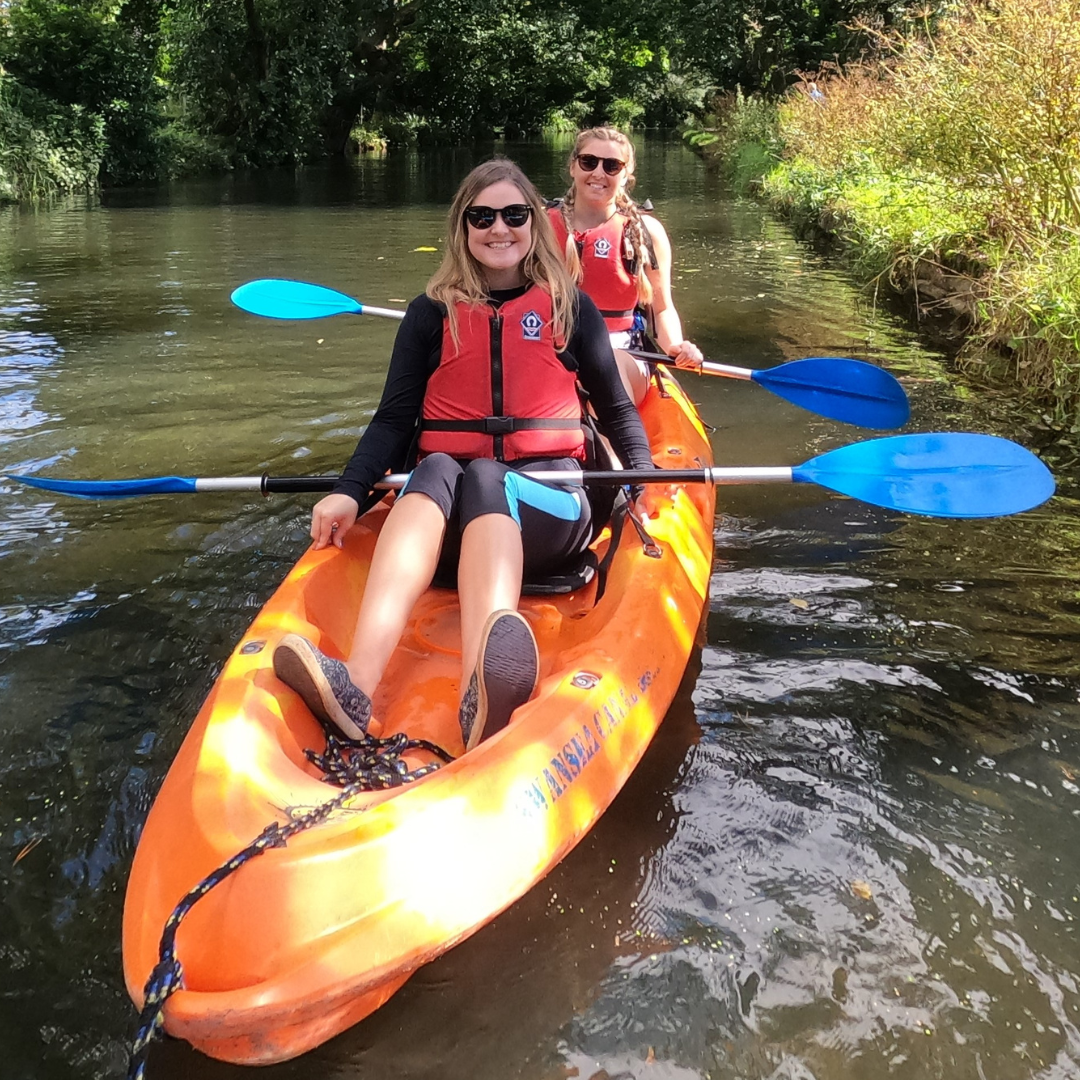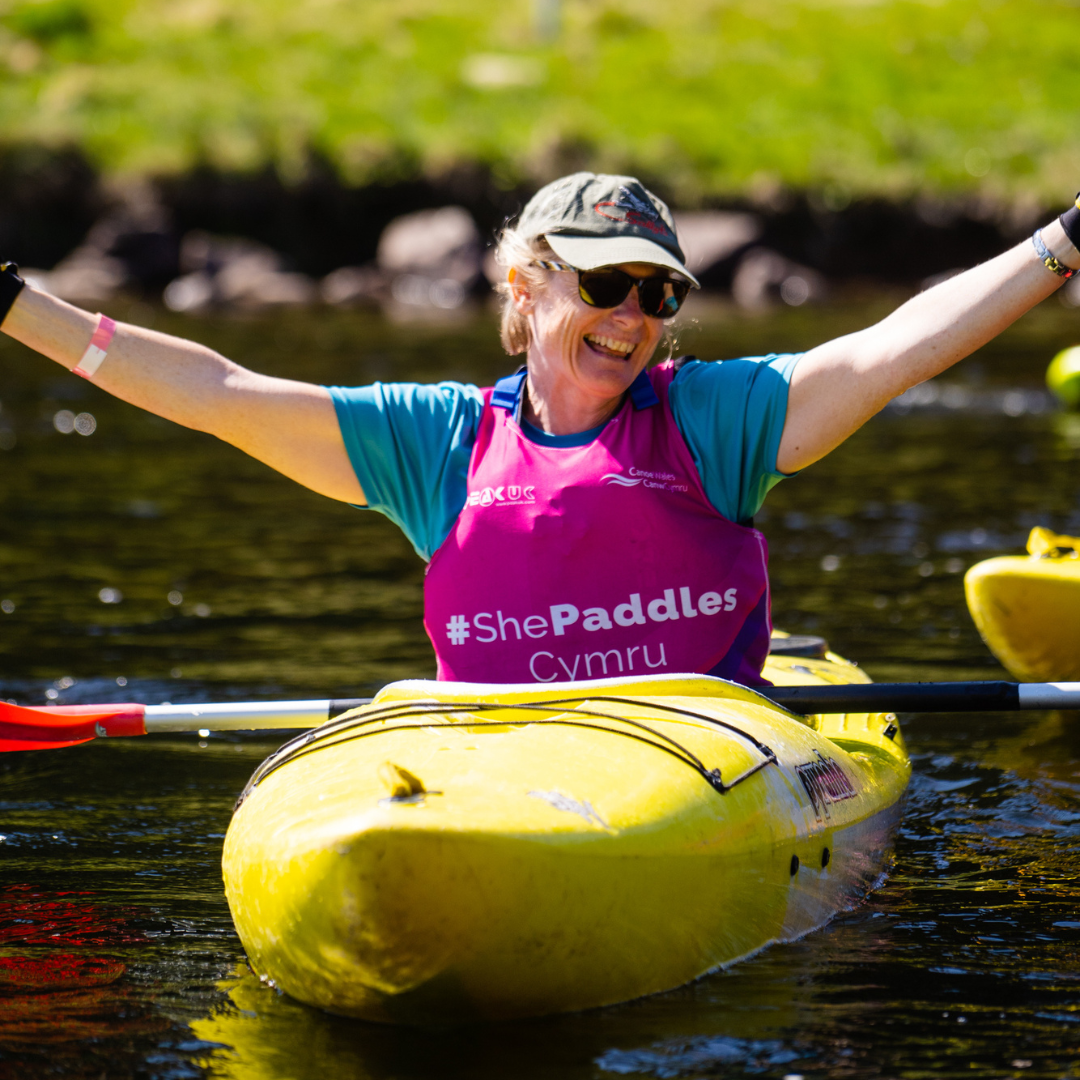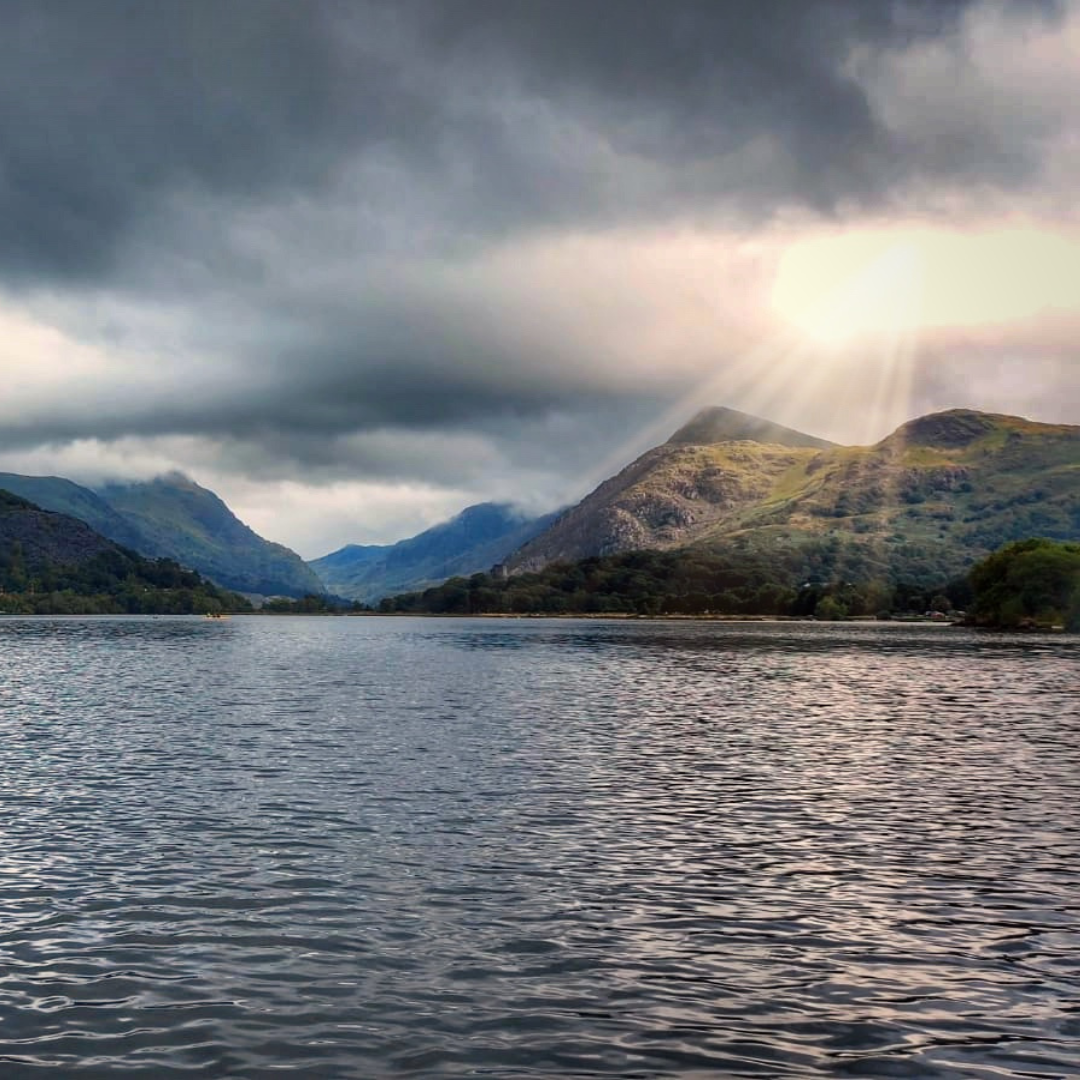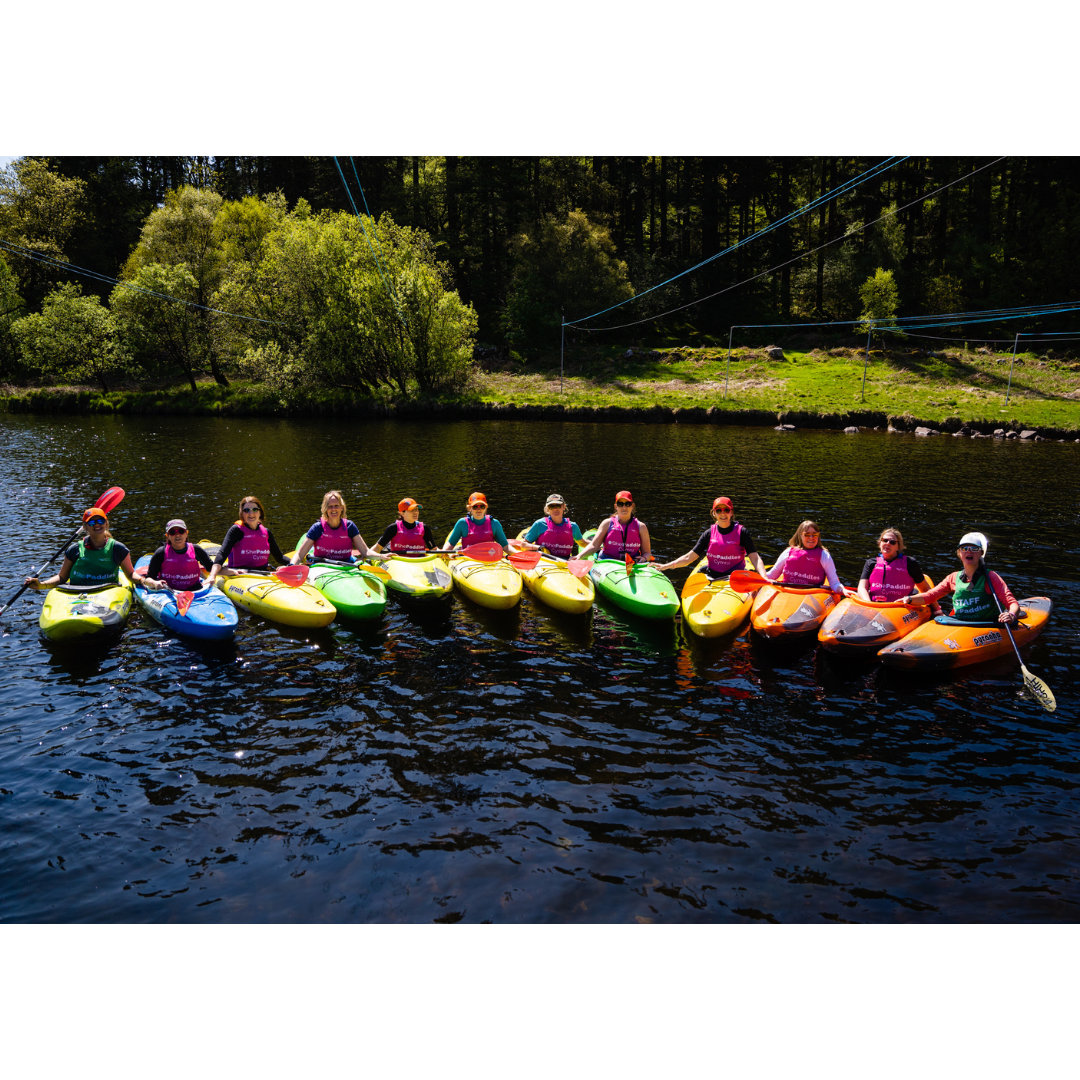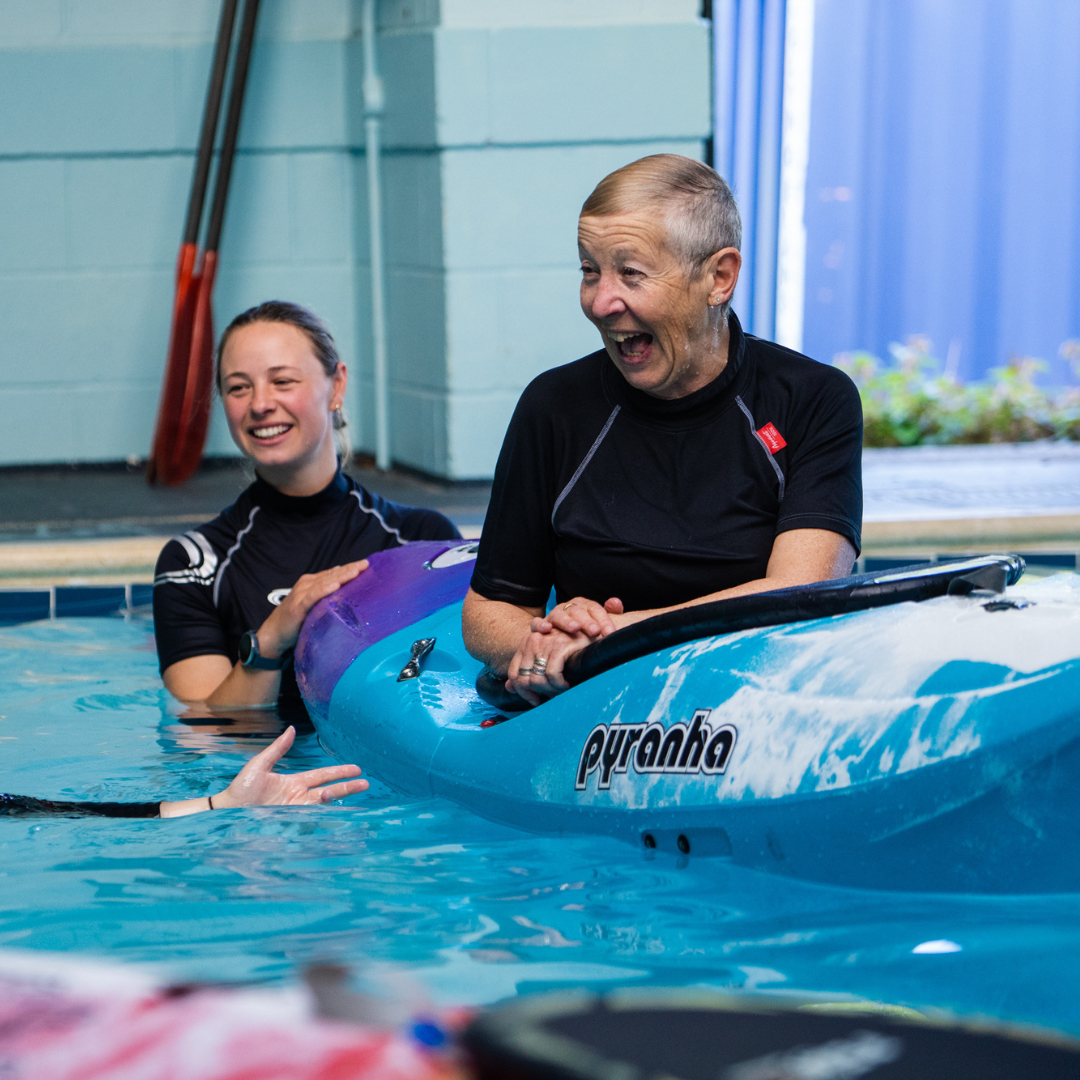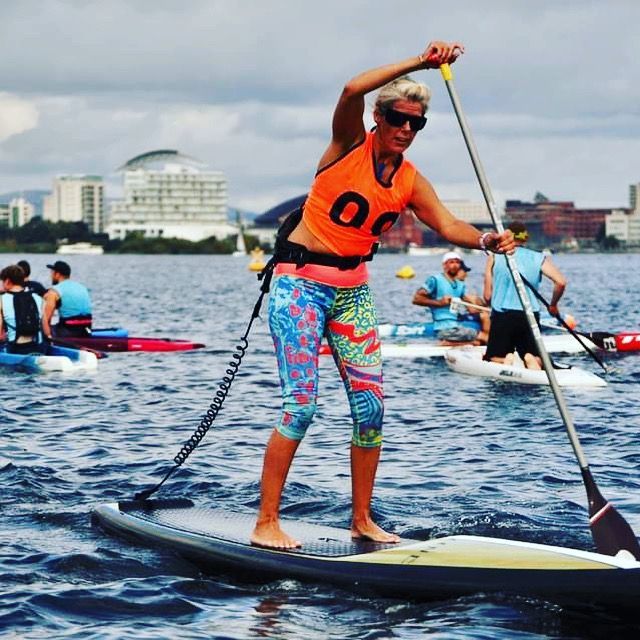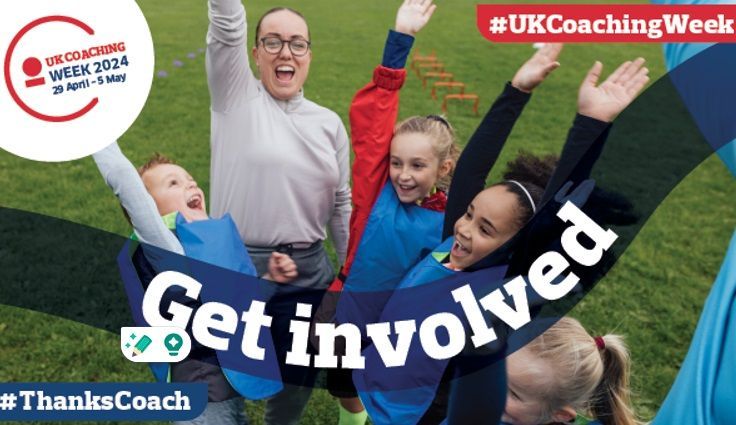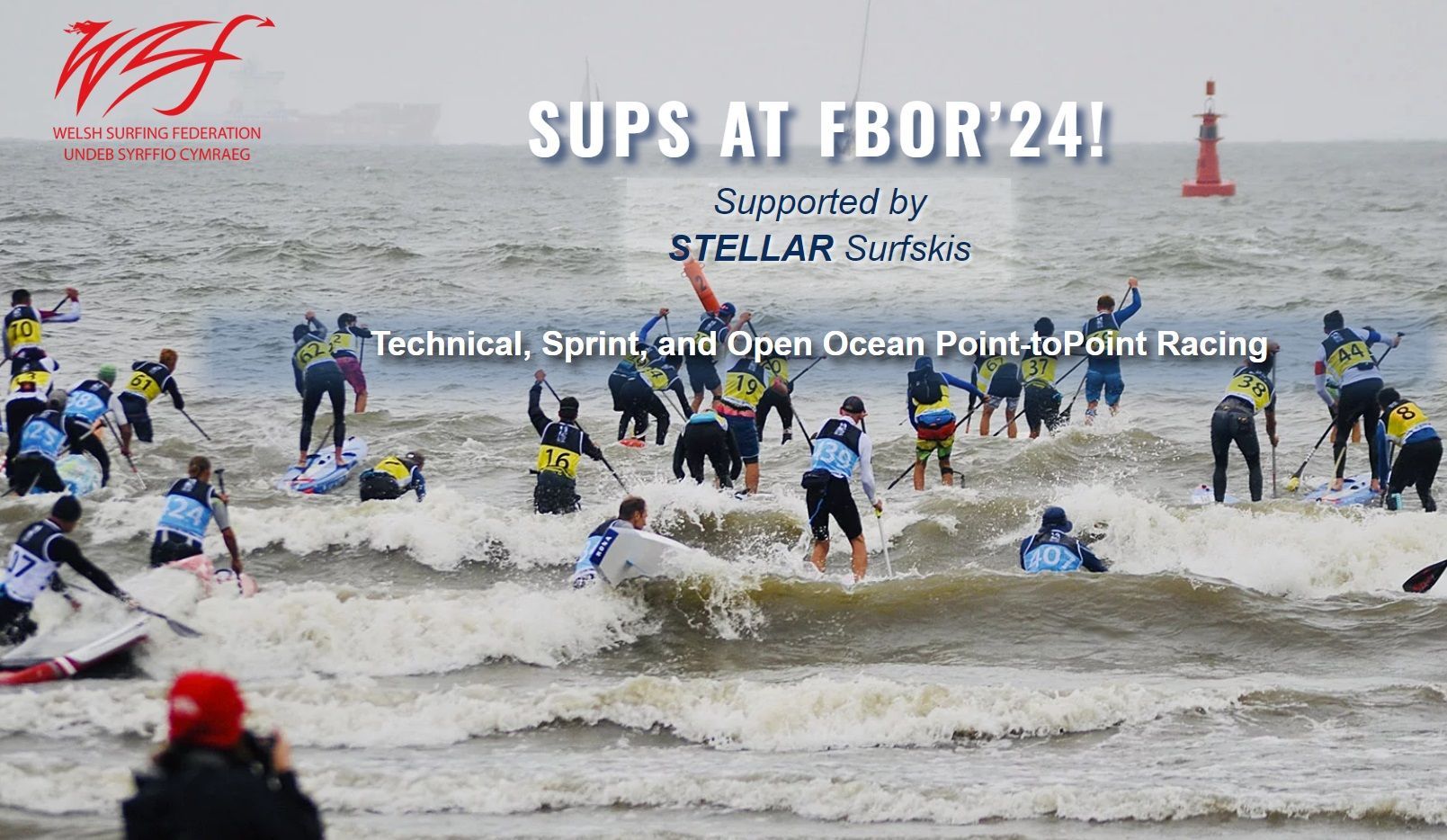Keeps you active
Paddling is a great aerobic activity, whether it’s on flat water, moving water or whitewater. Even the most leisurely paddle will raise your heart rate and give you a good aerobic workout. And being regularly active can help stave off type 2 diabetes, heart disease, strokes and even types of cancer. The perfect reason to go paddling!
Maximise the benefits Around 30 minutes of steady paddling will provide an aerobic workout. For more gains; for the last 5– 10 minutes push your paddlestroke a little faster, to raise your heart rate. As a general rule you want to be breathing hard enough that you have to … space … your … words … when … talking. If you do that every time you go paddling, you’ll start to feel the benefits. If you want to go a little further (literally!) how about taking on a GoPaddling Challenge, such as Llyn Tegid or the River Wye.

